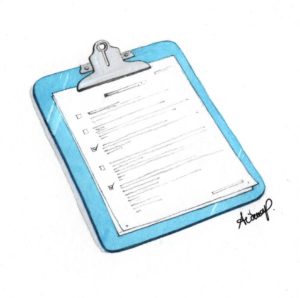Publishing a paper, a book, or an article is hard work. When you succeed, it feels amazing. When you don’t, all you want is to put the failed project behind you and move on. But you shouldn’t. Not so fast, at least. A failed writing project is more than wasted hours and effort. It can teach you a lot.
Here are some of the most valuable lessons you can learn from a failed writing project.
An idea that sounds great in your head may not be great on paper
An idea in your mind may seem great—until you write it down. Then you may realize it’s not great at all. If your ideas remain nestled in your head, they’ll be hazy, fuzzy thoughts that no one including you can make sense of.
Articulate your thoughts into sentences. Put them on paper so you’ll be able to look at your ideas objectively. Then decide whether you should pursue that writing project or not.
If you decide the project is worth pursuing, don’t jump into writing. Create an outline first. Then, examine it together with someone who has more writing experience than you do. Take the time to polish your initial idea before you start pouring time and energy into the project. It will then have a higher chance of success.
Step outside your comfort zone, but don’t step too far out
Write what you love to read. It’s as simple as that. If you try your hand at writing fiction when you read only nonfiction, or if you are considering starting a blog but never read web content, you are choosing a risky path.
When you hear “step outside your comfort zone”, remember the emphasis is on step. Going too far outside of your comfort zone may set you up for failure.
This doesn’t mean you shouldn’t write about things you don’t know well. But the learning curve will be smoother if you have at least some knowledge of your topic before you head out to do research on it.
Pet projects can become huge time sinks
Writing seems much easier than it is. So, expect to spend more time on your writing project than you think.
It is wise to put a cap on the number of hours you’re willing to dedicate to your project. Writing a book can become a time sink, and if it’s a pet project, it can wind up eating into your work or family time and offer you little or no reward.
Drifting goals increase the risk of failure
If you start a book on a whim, without defining clear goals from the beginning, you risk wasting time and possibly money.
For example, you may set out to write a story for fun. Later, seeing your manuscript reach 50,000 words, you may think publishing it makes sense. But at that point you’ll be switching goals: turning a hobby writing project into a commercial one. However, your draft will likely need a lot of rework before you can publish it. Hiring a freelance editor, a book cover designer, and more can be costly, and you need to be prepared for those expenses.
If you need to switch goals mid-project, it may be a sign you need to switch to a new project.
It’s not the effort that counts, but the effort does count
People say, “I could have written that [book, article, etc.]”, but they didn’t. Or, “I should write [book, article, etc.]”, but most of them don’t. You’ve tried at least, and that matters.
Even if your writing project has failed—you didn’t complete it, didn’t have the courage to publish it, or it received terrible reviews—it has taught you something. At least now you know how difficult it is to go from idea to final draft to publication. If a similar project comes up in the future, you’ll be better prepared to handle it.
A failed project is just that
Admitting failure hurts self-esteem. But it’s also liberating to accept you cannot do something, though you’ve tried. But before you move on, take a bit of time to examine what went wrong and what you’ve learned from your failed project. Put it down on paper, write a blog post on lessons learned from failed projects, or share your thoughts with a friend. If you learn from your mistakes, all the time and effort you’ve poured into your project will not be wasted, but invested.
Do you have a manuscript that needs to be professionally edited? Send me a message at editor@languageediting.com.
Related posts:
- Things I’ve learned from eight years of freelance editing
- What freelance editors can learn from project managers
- Why does it take so long to write a journal paper?
Last revised on 19 July 2022

